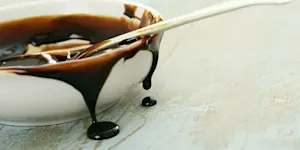What Makes This Word Tick
The word "curt" is all about brevity—not in the charming, concise way, but in a manner that might leave you feeling like someone skipped the pleasantries. It's often used to describe a tone or manner that’s short to the point of seeming rude. You know, like when your waiter tells you “how it is” without sugarcoating—a real no-frills approach!
If Curt Were a Person…
Curt would be that no-nonsense neighbor who gives one-word answers and doesn't bother with small talk. Imagine someone who values efficiency over chitchat, always straight to the point and not at all concerned if the delivery seems a tad blunt. But beneath that brusque exterior, there might be a heart of gold—or at least, we hope!
How This Word Has Changed Over Time
Originally from the Latin word "curtus," meaning shortened, "curt" has stayed fairly true to its roots. While the essence of brevity has remained constant, the undertone of rudeness seems to have sharpened over centuries. Its brevity now often means cutting through the fluff, sometimes a little too sharply for comfort.
Old Sayings and Proverbs That Use Curt
While there might not be any age-old proverbs featuring "curt," the idea of brevity has long been appreciated. “Brevity is the soul of wit,” as Shakespeare wrote, although even he might hesitate to say it in a curt fashion!
Surprising Facts About Curt
Did you know that being curt can sometimes convey authority? In business, a curt reply might be seen as decisive rather than dismissive. It’s all about context and the receiver’s perception—one person’s rudeness is another’s assertiveness!
Out and About With This Word
When you hear "curt" in everyday life, it might describe an awkward interaction or a terse email. Think of those times when you ask a store clerk for help and receive a brief nod in response. They may be busy, or it could simply be their style.
Pop Culture Moments Where Curt Was Used
In pop culture, characters often use "curt" exchanges for comedic effect or to showcase their sternness. Think of many sitcom bosses or teachers who demand respect with their clipped tones. It's efficient, quotable, and slightly fearsome!
The Word in Literature
"Curt" often makes its appearance in dialogue, highlighting a character's impatience or brusque personality. It might turn up in detective novels where the protagonist dispenses with niceties in a tense interrogation scene. A detective might say something curt when trying to get to the bottom of a case.
Moments in History with Curt
Imagine terse dispatches during wartime, where every word counted. General Patton might've appreciated a curt summary of battlefield positions—no fluff, just facts. Here, the quick delivery isn't just preferred; it's vital.
This Word Around the World
In other languages, the idea of "curt" often translates to words meaning "brief" or "abrupt." In Spanish, the word "cortante" can carry similar connotations of sharpness and brevity. Different cultures may interpret brevity with varying levels of politeness.
Where Does It Come From?
"Curtsy" to the past! "Curt" arises from the Latin "curtus," which meant short or broken. Over time, it shed its gentle "u" in Middle English to become the sharp, direct term we use today.
How People Misuse This Word
Some folks might mistake "curt" for being entirely synonymous with rude. While it often feels that way, context is key. A curt response isn't inherently negative—it can cut through cumbersome dialogue like a hot knife through butter.
Words It’s Often Confused With
Blunt: Both suggest directness, but "blunt" lacks the nuance of rudeness that "curt" conveys.
Brusque: Almost a synonym, "brusque" also involves a lack of formalities but comes with a slightly less pejorative edge.
Short: While related in concept, being "short" doesn’t always imply rudeness, unlike being "curt."
Crisp: This can mean concise but doesn't necessarily imply sharp or unfriendly communication.
Additional Synonyms and Antonyms
Additional synonyms include abrupt, snippy, and unceremonious. Antonyms might be polite, verbose, or gracious.
Want to Try It Out in a Sentence?
Sure! Here’s a go: "After asking about the meeting schedule, I received a curt reply: 'Check your email.'"
















